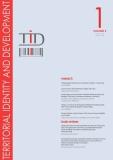ANTHROPOLOGICAL PERSPECTIVES ON ROMANIAN SOCIALISM. A CASE STUDY
ANTHROPOLOGICAL PERSPECTIVES ON ROMANIAN SOCIALISM. A CASE STUDY
Author(s): Alina BrandaSubject(s): Social history, Cultural Anthropology / Ethnology, Post-War period (1950 - 1989), Cold-War History
Published by: Universitatea Babeş-Bolyai
Keywords: Eastern Europe; Cold War; fieldwork; Social/Cultural Anthropology;
Summary/Abstract: This paper aims to analyze mainly how and why Western anthropologists conducted fieldwork in Eastern Europe during the Cold War. What motivated their particular research interest in this part of Europe, how they understood these societies and socialist systems, what specific factors made possible and facilitated the fieldwork they had conducted in difficult times. These are the main research questions addressed in this paper. Specifically, I refer to their work carried out in the 1970s-1980s in Romania. In particular, I aim at analyzing the works of three reputable US specialists in the field, who manifested a research interest, and conducted fieldwork especially (but not exclusively) in different rural settlements of this country. The paper attempts to identify the ways in which the Romanian socialism is understood in its peculiarities by these notable anthropologists, analyzing their studies as results of intensive fieldwork. Their works, published initially in English, in the USA, were translated into Romanian in the post 1989 decades, being received with high interest by “local specialists,” as well as by the broader public. They are present in representative anthologies on socialism and postsocialism, as valuable contribution to the understanding of these periods. Despite all these, comprehensive analysis of their contributions is still lacking, as well as the comparative frames meant to facilitate the identification of both specificities and recurrences in their works, in the ways they viewed the impact of socialisms on various, studied communities. It is a necessary and useful task to revisit their works (as well as the works of other anthropologists who conducted fieldwork in Romania and broader, in Eastern Europe) to understand in depth their views, their meanings and relevance in that particular context and afterwards, as well as their contribution to the Anthropology of Socialism and Postsocialism. Through this, other fields and topics are opening to the analysis, such as the contribution and particular roles of the Anthropology of Socialism and Postsocialism in structuring the Anthropology of Europe, as it is configured nowadays.
Journal: Territorial Identity and Development
- Issue Year: 5/2020
- Issue No: 1
- Page Range: 5-20
- Page Count: 16
- Language: English

